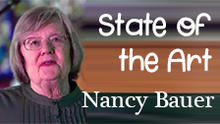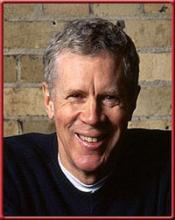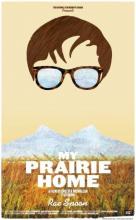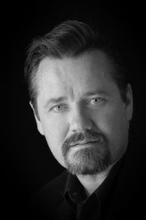Non-Fiction Features
Posted on June 26, 2018
A Defense of Stuart McLean
Posted on November 3, 2015
In honour of Stuart McLean, who passed away on February 15, 2017, we present, from our archives, Fiddlehead editorial assistant Ryan Gaio's piece from November 2015.
Queer Folk in Canada
Posted on March 26, 2015
By Reid Lodge
As a queer, transgender Canadian I often find people like me to be either underrepresented or poorly represented in fiction. The idea that marginalized groups are underrepresented in all forms of artistic media (especially the most popular varieties) is hardly new, but even so, I always find it worthwhile to call attention to some of the great work happening by queer artists across the country whenever I get the chance. . . .
Can a Young Writer Speak?
Posted on July 16, 2012
By Kelly Jarman
Jan Zwicky claims in her essay “The Ethics of the Negative Review” that a negative review is a “Squelching of self and creativity,” but for me my first semblance of a negative review was a grand inspirational moment, a first milestone to becoming a writer. Someone had taken my work to be worth criticizing on a higher level than mere feedback and deemed it to be worth spending the time to criticize. That was a great compliment. . . .
10 Rules for Submitting
Posted on January 25, 2012
By Christina Cooke
Taking a page out of the Globe and Mail’s column on “10 rules for writing” (who took a page out of the Guardian’s “Rules for writers” series, who took a page out of Elmore Leonard’s 10 Rules of Writing . . . I feel like I’m following the yellow-brick road . . . ), here are ten suggestions on submitting. Sending your prized brainchildren to far-off publications may seem daunting, so hopefully this list will ease some of that confusion and anxiety. . . .
Small Presses, Literary Magazines, and the “big times”
Posted on November 22, 2011
By Gerard Beirne
While small presses and literary magazines are often used as stepping stones, they are more rightly to be considered cornerstones that all other stones ought to be set in reference to.
In Praise of Memorization
Posted on February 24, 2011
By Madeline Bassnett
I’ve been thinking lately about Robert Frost’s “Stopping by Woods on a Snowy Evening.” It fits the current Fredericton landscape perfectly: the snow lies two feet thick on the ground and I have to strap on snowshoes just to feed the backyard birds. But I think about this poem for another reason too: it’s an old friend, the first poem I fully memorized.
Revision
Posted on February 14, 2011
By Madeline Bassnett
My life is all about revision — and that’s not just a metaphorical statement. It seems I’ve ceased writing anything new: my only task is to complete and repair the old. As if I’ve suddenly entered the field of furniture restoration, sanding the scratches, oiling the bumps, replacing worn nails — a deceptively satisfying comparison. As if revision were simply a matter of priming and primping, of returning to some earlier and idealised state.
Train Your Brain to Create instead of Think (part 2)
Posted on December 7, 2010
By Matt Mott
Set small, specific goals like write a scene with a lamp, a dog, and blue sedan. Remember, education is about drills and jumping through hoops. Most of those hoops are going to be completely arbitrary, just like lifting a dumb-bell up and down is completely arbitrary, but arbitrary hoops provide practice, and you need to practice creativity to develop it as a skill. Editing comes later. Learn to just grow a story first. . . .
Train Your Brain to Create instead of Think (part 1)
Posted on December 2, 2010
By Matt Mott
You can’t teach someone to be a good writer per se, but you can teach people, or rather train people, to regularly access the creative side of their brain. You’d think this would come eventually as you write more and more stories (however failed those stories may be), but this is not always the case. . . .














